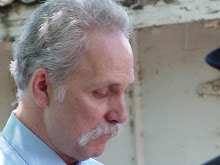Your only a part of the machine orlee.I get it from all sides here in washington
state.And I'm glad you checked into your partys way of fixing an
election..Republicans do not have this feature in their primary..This will
explain how it came about
There has been a lot of confusion over delegates and super-delegates. And,
because of the close race between Obama and Clinton, understanding the role of
delegates and super-delegates is going to be more important than in past
elections. However, understanding may be the easy part...Getting over the
seemingly less than democratic process, may prove to be more difficult.
So, lets take a look at the super-delegates...
The Super-delegates are party leaders and lawmakers, including all
Democratic members of Congress and former presidents Jimmy Carter and Bill
Clinton, as well as ex-vice president Al Gore.
If no candidate has a lock on the 2,025 delegates needed to secure the
nomination before the party's convention in August, the 796 "super-delegates" would be decisive.
Unlike "pledged" delegates chosen through primaries and caucuses,
super-delegates are free to vote for whomever they chose. Many have already
promised to back one candidate or another, "and most of the others will at some
point before the convention," said Michael Tanner, a political analyst with the
Cato Institute.
Who are the super delegates? The following information is from the 2008
Democratic Convention Watch.
List of super delegates that have already endorsed a candidate.
List of super delegates that have NOT yet endorsed a candidate.
Why did the party adopt the 'super delegate' system?
Super-delegates were supposed to supply some Establishment stability to the
nominating process.
Before 1972, party elders, such as Chicago Mayor Richard Daley and Charlie
Buckley, the boss of The Bronx who helped John Kennedy clinch the 1960
nomination, wielded inordinate power.
But in early 1970's, the party's rules were reformed to open the process to grass-roots activists, women, and ethnic minorities.
Sen. George McGovern, the leading anti-Vietnam war liberal, won the 1972
nomination. McGovern turned out to be a disaster as a presidential candidate,
winning only one state and the District of Columbia.
So without reverting to the days of party bosses like Buckley, the Democrats
decided to guarantee that elected officials would have a bigger voice in the
nomination.
Most people don't like the idea of our next presidential nominee being decided
by super delegates. And, if it comes down to that, I think there is going to be
some real trouble in the Democratic party. Personally, as a disenfranchised
voter in Florida, I would be furious if super delegates decided the nominee, but
Florida delegates did even get counted.
So now we all know how superdelegates came into being,and why.
Subscribe to:
Post Comments (Atom)

No comments:
Post a Comment